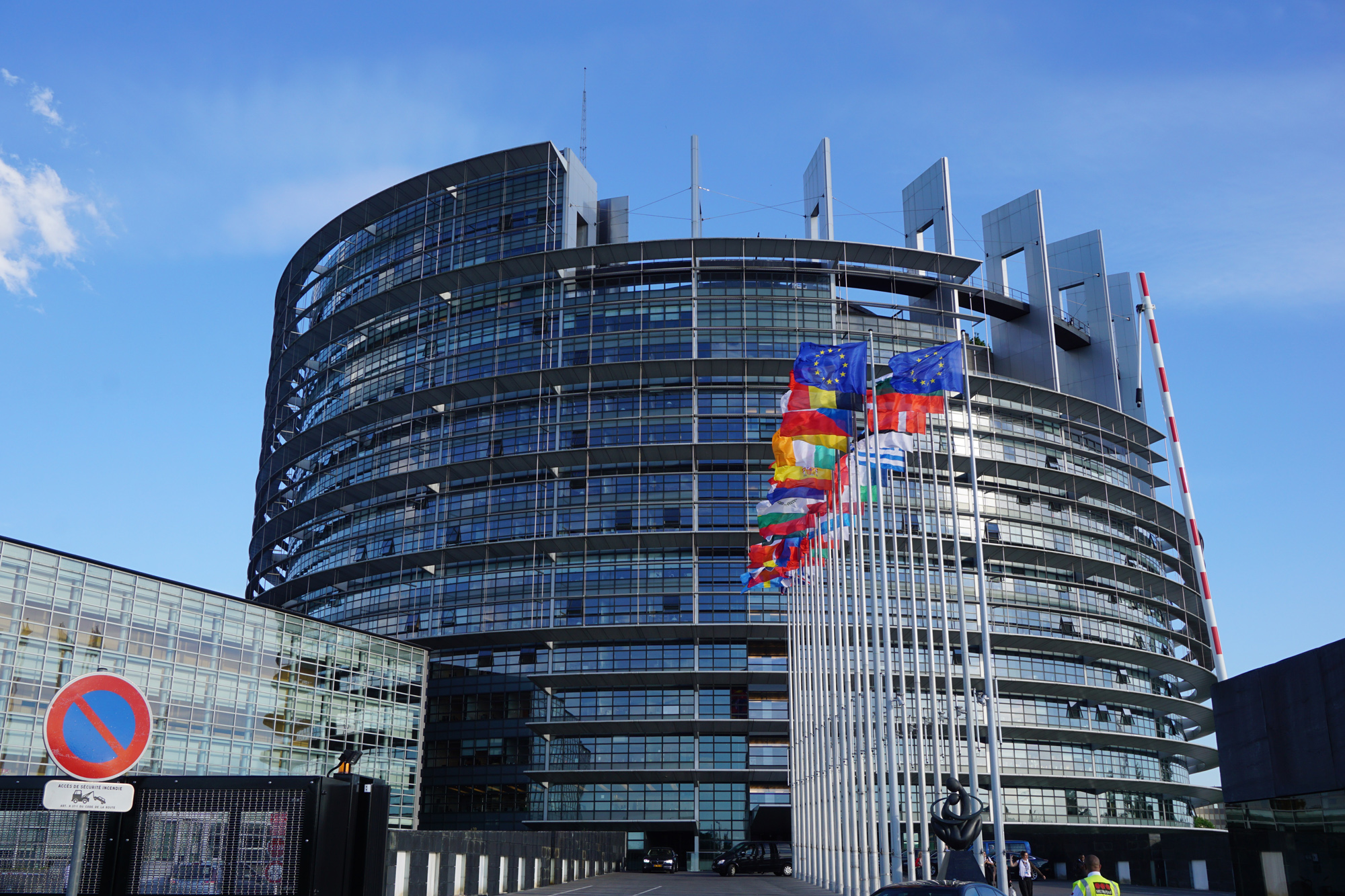Dutch universities have been awarded 14 advanced grants from the European Research Council. With three grants, TU Delft is leading the pack.
EU-head quarters in Stratsburg. (Foto: pxhere)
The advanced grants are intended for experienced researchers and could go up to EUR 2.5 million over a five year period, on top of a possible EUR 1 million for equipment. The TU Delft grants were awarded to Professors Cees Dekker, Lieven Vandersypen and Jerry Westerweel.
Cees Dekker: Bottom up biophysics approach to resolve the looping structure of chromosomes.
Prof. Cees Dekker’s group at the Kavli Institute TU Delft (Faculty AS) has researched the spatial structure of chromosomes for a couple of years. In Science, the group showed that the protein condensin makes loops in DNA strings. The follow-up research project will involve about 10 researchers working on what Dekker calls a ‘genome in a box’. Using a custom-made setup, the researchers will systematically measure the interactions of all sorts of proteins with long DNA strings the length of a bacterial genome. There is a whole series of proteins for research. Dekker says that “There are proteins that make loops, proteins that make bridges, that group in clusters, determine the basepair orders, and much more.” The EUR 2.5 million from the ERC will allow Dekker and his research team to map this molecular box of LEGO over the next five years.
Lieven Vandersypen: Quantum Dot Fermi-Hubbard Emulators.
“We will emulate complex quantum systems,” says Prof. Lieven Vandersypen of QuTech and the Kavli Institute TU Delft (Faculty AS). Emulation is frequently used in physics to understand systems. But in this case, it will be the emulation of quantum systems such as electrons or molecules. Emulation using super computers is not suitable for this purpose given quantum behaviour. Building on their recent article in Nature, Vandersypen is developing two times 12 quantum dots in his lab to emulate material properties at quantum level. Whoever thinks this is unrealistic, does not understand that quantum behaviour is the foundation for material properties such as magnetism and super conduction.
Jerry Westerweel: Impulsive Flows – beyond velocity and acceleration
“In fluid dynamics, we always assume a constant speed through water or a constant air speed in the wind tunnel,” says Prof. Jerry Westerweel (Faculty 3mE), “but when researching rowing, we saw that when a moving object accelerates, the forces are different than is predicted in current theory.” Fluid dynamics starts to break down with different speeds, delays and corners. Westerweel thinks beyond just rowing and swimming to flows in the balancing organ in the inner ear, wind turbines in turbulence and manoeuvring drones and helicopters. There will be a new lab with robots that move objects at varying speeds through water. Examining the flows around them will be the first step in systematically studying flow behaviour at non constant speeds. Westerweel will involve three doctoral candidates and one post doc.
In total, the ERC will award 185 advanced grants worth EUR 450 million. As always, the ERC will also disappoint many researchers again. They received 1,881 applications, of which less than 10% were honoured. One of five grants went to women. In terms of nationality, the Netherlands, with 16 scientists, is in fourth place on the ranking.
Universities in the Netherlands that were awarded grants are:
- TU Delft (3);
- Vrije Universiteit Amsterdam en Medisch Centrum (2);
- Stichting voor Fundamenteel Onderzoek der Materie (2);
- Rijksuniversiteit Groningen (2);
- TU Eindhoven (1);
- Universiteit Utrecht (1);
- Universiteit Leiden (1);
- Erasmus Universiteit Rotterdam (1);
- Leids Universitair Medisch Centrum (1).
TU Delta, Jos Wassink, HOP, Evelien Flink
Do you have a question or comment about this article?
j.w.wassink@tudelft.nl


Comments are closed.